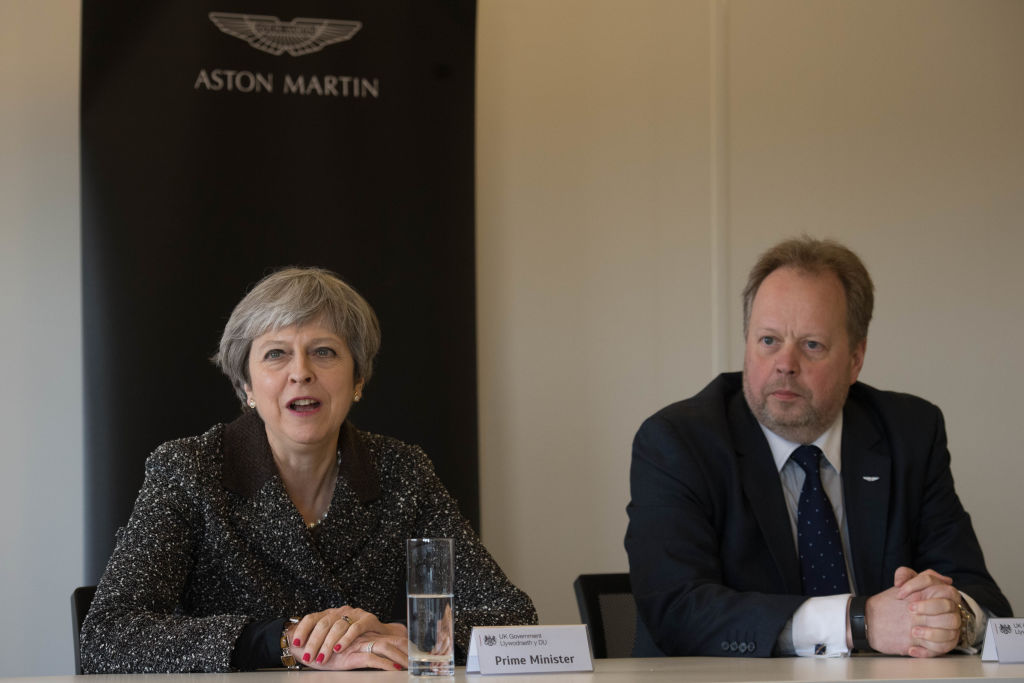Most of us probably decided Aston Martin was by far the coolest car company in the world the first time we saw Honour Blackman climb into James Bond’s DB5 in Goldfinger. But just in case there were still any doubters out there, there is now another reason to love them as well. Amidst the constant predictions of disaster from the auto industry that would follow from leaving the European Union without a deal, the company’s chief executive has pointed out an obvious fact: that at this stage, it would be better to simply leave than prolong the agony of our departure any further.
The auto industry has been one of the most consistent supporters both of staying in the EU, and, if we absolutely must leave, doing so with a deal that preserves as much of the relationship as possible. There was no great mystery about that. Cars are complex machines, with thousands of parts that are shipped in from around the continent, assembled, and then often shipped back out again. The benefits of the Single Market were often oversold, and in truth it didn’t make a whole lot of difference to most companies. But it was critical to the auto manufacturers and the pain from losing it would be real.
But only up to a point. At an industry event this week, Aston’s boss Andy Palmer argued that this point had been reached. “Every time we have to prepare to leave it ties up working capital and brains on something that may or may not happen,” he argued. “First and foremost, I think we now need certainty. I think business was pretty clear that it would prefer a deal with free trade with Europe, and it is true we are looking at a cliff edge without one but at this stage a decision is better than no decision.”
Cripes. That is a surprise. Who knows, at this rate maybe even Dominic Grieve, Mark Carney and the CBI’s Carolyn Fairbairn will come round to leaving the EU on 31 October, deal or no deal?
In fact, Palmer is making a perfectly reasonable point and one that many more senior figures from industry should be making. There are obviously costs to crashing out of the EU with no formal transition, even if they depend on what kind of restrictions and tariffs the EU imposes and how strictly it chooses to enforce the rules. But they are limited.
Even for cars, which have one of the highest permitted tariffs rates, it is only ten per cent. There may well be more paperwork, which is a bother, but in the end it is just a matter of filling in forms. And there may be some product registration. But again, it is just more red tape. Companies cope with all kinds of setbacks. There is no reason those challenges can’t be overcome.
Against that, uncertainty has costs as well. Plans have to be made and re-made. Stocks have to be built up, then run down again. Systems have to be put in place, then mothballed, then dusted off again and refreshed.
Every time the UK goes round that track it burns up time and money. By now, it should be obvious that the chaos from arguing over the terms of departure is worse for the economy than even the most disorderly departure.
We can see that in the sharp slowdown in output since we extended the whole fiasco back in March. By October, it will be better simply to get out. If even the car industry can see that, perhaps even parliament will get it as well.






Comments